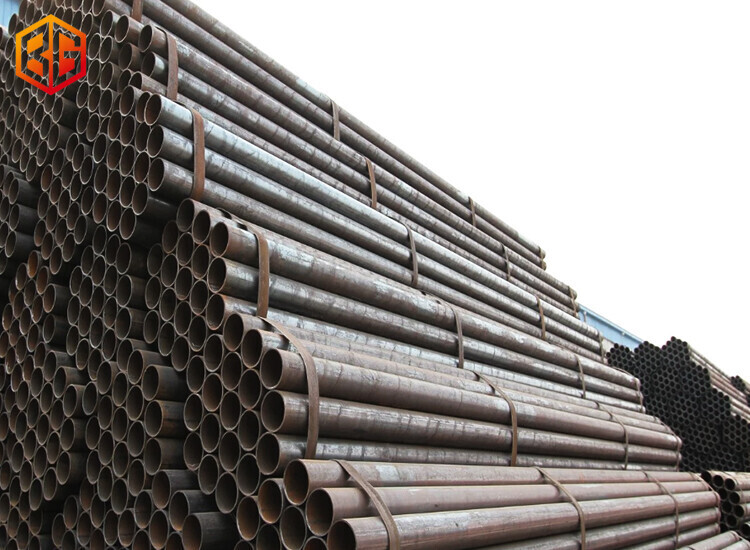NEWS

SPCC is a common low carbon steel plate, which has good mechanical properties and processing properties after cold rolling, and is mainly used in the manufacture of various stamping parts. But SPCCS can sometimes rust.
What is SPCC
SPCC is a common steel, the full name is "cold rolled carbon steel plate". This material is widely used in manufacturing and engineering fields, mainly for the production of stamped parts, such as the outer boxes and parts of automobiles, refrigerators, washing machines and other products, as well as load-bearing structures in the construction industry. The chemical composition of SPCC is mainly carbon, silicon, manganese, phosphorus, sulfur and other elements.
The ratio of these elements determines the mechanical properties and machining properties of SPCC. Among them, carbon is the main element that affects the strength and hardness of SPCC, silicon and manganese can increase the toughness of SPCC, while phosphorus and sulfur will have a negative impact on the processing performance of SPCC.
SPCC production process mainly has two methods: cold rolling and annealing. Cold rolling is to cool the hot rolled steel plate to a certain temperature before rolling to obtain the required thickness and dimensional accuracy. Annealing is to heat the cold-rolled steel plate to a certain temperature and hold it for a certain time to eliminate internal stress and improve plasticity and toughness to meet the requirements of stamping.
Features of SPCC
High strength, high hardness: SPCC has a high yield strength and tensile strength, can withstand greater pressure and load, so it is often used to manufacture load-bearing structures and parts with high safety requirements.
Good processing performance: SPCC can be deep drawing, bending, calendering and other forming processing, and the surface of the processed parts is smooth and high dimensional accuracy.
Good corrosion resistance: SPCC surface coating has good corrosion resistance and can be used in a corrosive environment for a long time.
Low price: SPCC is relatively inexpensive and suitable for mass production and the manufacture of price-sensitive parts.
The application range of PCC is very wide, in addition to the manufacture of automobiles, refrigerators, washing machines and other products of the outer box and parts, can also be used in the construction industry load-bearing structure, electrical equipment shell, food industry packaging containers.
It is important to note that SPCC also has some drawbacks and limitations. For example, its cold-rolled sheet has high strength and is not easy to rebound, so there may be residual stress problems. In addition, the forming process of the SPCC requires precise process control and material processing, otherwise it may cause dimensional deviation or deformation of the part. Therefore, in practical applications, it is necessary to carry out reasonable material selection and processing according to specific use requirements and production conditions.
Why does SPCC rust
The main components of SPCC are Fe, C, Si, Mn, P, S and other elements. Iron is a relatively active metal element, which is easy to react with oxygen and water molecules to generate iron oxides and water oxides, thus forming rust. SPCC is more prone to rust in a humid environment with high salt content or corrosive gas, because the humid environment provides enough water, salt has a corrosive effect on iron, and corrosive gas will directly cause chemical erosion on the surface of SPCC. If the SPCC surface is defective, rough, or does not do a good job of anti-rust treatment, it is easier to corrosion, such as scratches on the surface, uneven, or residual oil, will provide conditions for rust.
How to prevent SPCC rust
Surface treatment: The SPCC surface is painted, electroplated, oxidized, etc., to increase its corrosion resistance.
Storage environment: Avoid placing SPCC in humid, salty environments or environments containing corrosive gases.
Use anti-rust agent: Spray anti-rust agent on the surface of the SPCC to prevent the intrusion of oxygen and water molecules, thereby preventing rust.
Process optimization: SPCC in the process of processing, as far as possible to reduce surface damage and oil residue, improve the surface corrosion resistance.
Related Posts
- The 137th Canton Fair opens grandly!
- Ramadan Mubarak to you
- The New Year bell rings, and dreams begin
- Welcome 2025: New Year, New Hope
- We Wish You A Merry Christmas & A Happy New Year
- What are the uses of mild steel
- Why can steel sheet piles be your first choice
- There are several types of common steel sheet piles
- Application areas of color-coated corrugated board
- Cutting method of 304 stainless steel pipe
- Production process of tinplate rolls
- Corrosion Protection Measures for SSAW Steel Pipes for Drainage
Contact Us
MESSAGE
